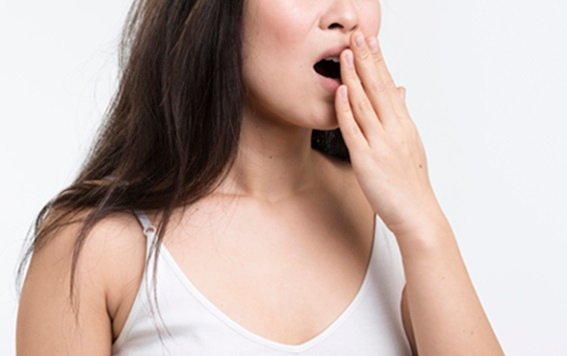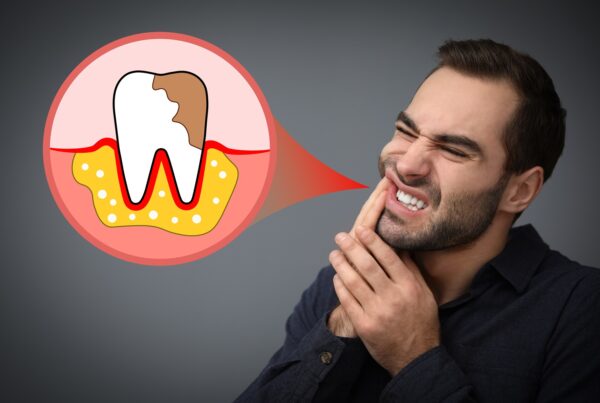In this blog, we’ll explore mouth breathing, its dental side effects, and why professional treatment is often the best solution for long-term dental health.
What is Mouth Breathing?
Breathing primarily through your mouth, rather than your nose, is called mouth breathing. While occasional mouth breathing is normal during exercise or a stuffy nose, chronic mouth breathing can lead to various health problems, including dental issues.
Who Develops Mouth Breathing?
Several factors can contribute to mouth breathing, including:
- Enlarged tonsils or adenoids: These swollen tissues can obstruct the nasal passage, making breathing through the nose difficult.
- Deviated septum: A misaligned septum in the nose can block airflow.
- Allergies: Chronic allergies can cause nasal congestion, leading to mouth breathing.
- Facial injuries or structural abnormalities: Injuries or birth defects can affect the nasal passages and promote mouth breathing.
- Habitual mouth breathing: In some cases, individuals may simply develop the habit of breathing through their mouth.

7 Dental Side Effects of Mouth Breathing:
Chronic mouth breathing can have a significant impact on your oral health. Here are seven ways it can affect your teeth and gums:
- Dry Mouth: Saliva plays a crucial role in maintaining oral health. It washes away food particles, neutralizes acids produced by bacteria, and helps prevent cavities. Mouth breathing disrupts saliva production, leading to a dry mouth environment, which increases the risk of tooth decay and gum disease.
- Bad Breath (Halitosis): Dry mouth caused by mouth breathing allows bacteria to thrive, leading to the buildup of bad-smelling compounds and chronic bad breath.
- Gum Inflammation (Gingivitis): A dry mouth environment makes it easier for plaque to accumulate on the teeth and gums. This plaque buildup can irritate the gums, leading to gingivitis, characterized by redness, swelling, and bleeding.
- Gum Disease (Periodontitis): Left untreated, gingivitis can progress to periodontitis, a severe gum infection that damages the supporting tissues of the teeth. Periodontitis can lead to tooth loss and bone deterioration in the jaw.
- Tooth Decay: The lack of saliva’s cleansing and protective properties increases the risk of tooth decay. Mouth breathing can also expose teeth to acidic foods and drinks for longer durations, further promoting cavities.
- Tooth Erosion: Chronic dryness can weaken tooth enamel, making teeth more susceptible to erosion from acidic foods and drinks. This can lead to sensitivity and discomfort.
- Malocclusion (Misaligned Teeth): In children, persistent mouth breathing can affect jaw development and contribute to misaligned teeth. This can lead to bite problems and require orthodontic treatment to correct.
How to Stop Mouth Breathing? Breathe Easy, Naturally!
While some cases of mouth breathing require professional intervention, there are steps you can take at home to encourage nasal breathing and potentially reduce your reliance on mouth breathing. Here are some tips to try:
- Practice Nasal Breathing: Consciously focus on breathing through your nose throughout the day. This can help retrain your breathing muscles and promote nasal dominance.
- Hydrate: Drinking plenty of water helps keep your nasal passages moist, making nasal breathing easier and more comfortable.
- Use a Humidifier: Especially in dry climates or during winter, using a humidifier can add moisture to the air, easing congestion and promoting nasal breathing.
- Saline Nasal Sprays: Saline nasal sprays can help loosen mucus and clear congestion, making breathing through your nose easier.
- Reduce Allergens: If allergies contribute to your nasal congestion, identify and avoid triggers like dust, pollen, or pet dander. Consider consulting an allergist for guidance.
- Maintain Good Sleep Hygiene: Establishing a regular sleep schedule and creating a relaxing bedtime routine can improve sleep quality and potentially reduce nighttime mouth breathing.
- Strengthen Facial Muscles: Certain facial exercises can help strengthen the muscles around your mouth and nose, promoting proper lip closure and nasal breathing. However, consult a doctor or dentist before starting any new exercises.
Important Note: These tips are intended to support healthy breathing habits and may not address the underlying cause of mouth breathing in all cases. If you suspect chronic mouth breathing, experiencing dental complications, or have concerns about your breathing patterns, consulting a doctor or dentist for a proper diagnosis and treatment plan is crucial.
How do we treat mouth breathing at American Dental Practices?
At American Dental Practices, our experienced dentists will conduct a thorough examination to identify the cause of your mouth breathing. We offer various treatment options, including:
- Referral to an ENT specialist: If an underlying medical condition necessitates it, we can refer you to an Ear, Nose, and Throat (ENT) specialist for further evaluation and treatment. Collaboration with an ENT specialist ensures a comprehensive approach to addressing mouth breathing.
- Dental Treatments: Depending on the dental complications arising from mouth breathing, we can provide appropriate treatments, such as:
- Cleanings and Fluoride Treatments: Regular professional cleanings remove plaque and tartar buildup, while fluoride treatments strengthen tooth enamel to combat decay.
- Fillings: We can repair cavities caused by mouth breathing with tooth-colored fillings, restoring functionality and aesthetics.
- Gum Disease Treatment: If gum disease is present, we offer various treatment options based on the severity, including scaling and root planing (deep cleaning) and periodontal surgery in advanced cases.
- Orthodontics: In children experiencing jaw development issues due to mouth breathing, we can explore orthodontic treatment options like braces or clear aligners to correct misaligned teeth and improve bite.
- Patient Education: We emphasize the importance of proper oral hygiene practices and maintaining a healthy mouth environment. This includes brushing twice daily, flossing regularly, and using a mouthwash suitable for your needs.
- Collaboration with Sleep Specialists: If sleep apnea is suspected as a contributing factor to mouth breathing, we may collaborate with sleep specialists to explore treatment options like CPAP therapy.
By combining advanced dental treatments, collaboration with specialists, and patient education, American Dental Practices strives to provide a holistic approach to treating mouth breathing and its dental consequences.
FAQ’s
How can I stop mouth breathing?
While some simple lifestyle changes can help, like using a humidifier or saline nasal spray, addressing the underlying cause of mouth breathing is crucial. Consulting a doctor or dentist to identify the cause and explore treatment options is vital for long-term oral and overall health.
Can mouth breathing be treated?
Absolutely! Treatment options for mouth breathing vary depending on the underlying cause. In some cases, medication or allergy management might be sufficient. Other options include:
Surgery: Tonsillectomy or adenoid removal can be performed to address enlarged tissues blocking the airway.
Septoplasty: This surgery corrects a deviated septum to improve nasal airflow.
Myofunctional Therapy: This therapy helps train facial muscles to promote proper breathing patterns.
Oral Appliances: Certain appliances can help open the airway and encourage nasal breathing during sleep.
Is mouth taping safe?
Mouth taping has become a popular trend for promoting nasal breathing. However, it’s important to consult a doctor or dentist before trying this approach. In some cases, mouth taping can be dangerous, especially for individuals with certain medical conditions.
Should I tape my mouth at night?
Self-treatment methods like mouth taping should not replace professional medical advice. Consulting a dentist or doctor to diagnose the cause of mouth breathing and explore proper treatment options is always recommended.
Fight Dental Side Effects of Mouth Breathing, Book Today!
Best Results Guaranteed! Book now.






